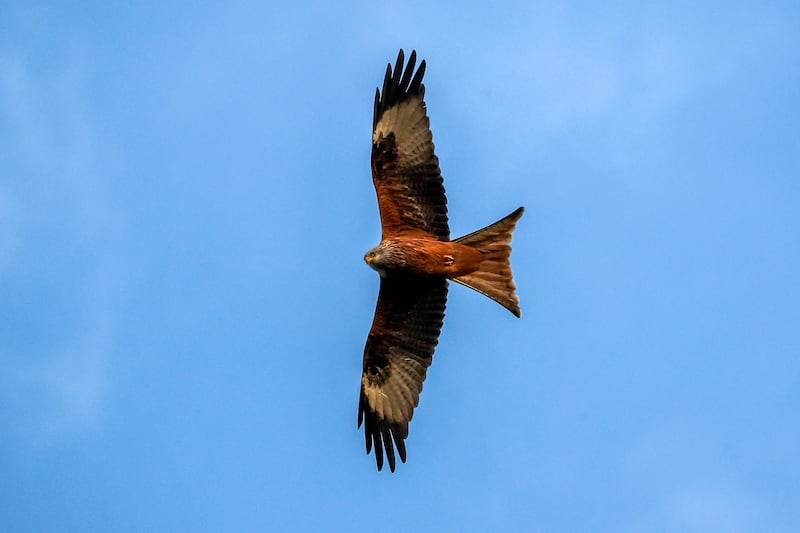In 1937, one of Ireland’s most notable naturalists and botanists, Robert Lloyd Praeger, published his famous book, The Way That I Went, a celebration of the Irish landscape based on five years of exploring our hills, bogs, islands and caves.
Born in Co Down, Praeger loved the Irish landscape and devoted much of his life to protecting it. In a week when the RSPB recently released its alarming report on the number of raptors illegally killed here, ‘89 confirmed incidents in the past 15 years’, I thought of Praeger’s words on our birds of prey at the time.
Read more: Puffin poo, sharks and the magic of Rathlin Island - Ruby Free’s walk on the wild side
While lamenting the loss, through persecution, of our two eagle species as breeders in Ireland, the golden and white-tailed, he wrote, that, “in Scotland, under wise protection, the Golden Eagle is more than holding his own; but heaven help the bird that ventures near the ’island of the saints’”.

In Ireland at the time, eagles and most other raptors, including, hen harriers, buzzards and kites were relentlessly pursued and hunted by, as Praeger describes, “sportsmen and gamekeepers”, resulting in extinction for many.
In recent decades, thanks to a more enlightened public and restrictions on the use of pesticides and rodenticides, many of these birds are successfully re-establishing themselves as primary predators in our ecosystem, helping to clean up the environment by preying on rodents, road kills and other carrion. They increase biodiversity and their presence also contributes to tourism.
Read more: Once extinct in Ireland, White-tailed Eagles breed in north for first time in 150 years
It is disturbing, therefore, to hear of the cruel and deliberate poisoning and shooting of some of these magnificent birds, such as red kites and both eagle species, especially given the effort by many individuals and organisations to help bring them back and facilitate successful breeding here again, like the white-tailed eagle pair which fledged a single chick in Co Fermanagh this year.
In the early stages of the reintroduction process, when the first golden and white-tailed eagles were brought here, much work was done to assuage the fears of local rural communities especially, that the birds posed no significant threat to livestock, particularly sheep in upland areas.
In the case of the golden eagle, the experience of Scottish farmers was shared with their Donegal counterparts and did much to help get the local farming community on board to support the reintroduction programme.
Similar work was done in Kerry before the white-tailed eagles were first introduced there in 2007. It is heartening to know that most landowners here recognise the importance of raptors in regulating a healthy environment and wish to see them flourish.
Whilst the abhorrent practice of shooting and poisoning our birds of prey is still occurring, there is still much to celebrate with increasing numbers of raptors across the island
These custodians of our countryside, who work, know and are part of the land, are very knowledgeable and invested in the wild species which share their terrain and skies.

Whilst the abhorrent practice of shooting and poisoning our birds of prey is still occurring - primarily linked, as the RSPB states, with “land managed for gamebird shooting where some individuals deliberately target birds of prey to try to maximise the number of gamebirds available to shoot for sport and profit” - there is still much to celebrate with increasing numbers of raptors across the island. Buzzards, once confined to the north east, are now recorded in every county and breeding in many, both eagles and red kites are establishing themselves as breeding species and ospreys have made a successful return, breeding in Fermanagh and Leitrim in the past two seasons.
Last week a local farmer spoke enthusiastically to me about the presence of owls around his area, clearly valuing their importance as part of a thriving countryside. Such appreciation, allied to maintenance of good habitat, will surely help increase raptor numbers in the future.







